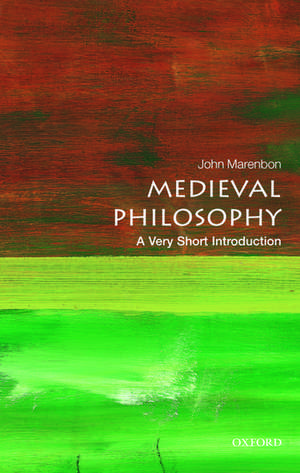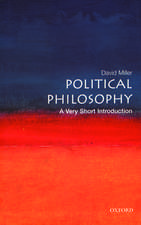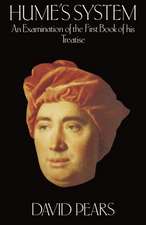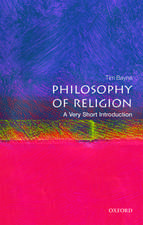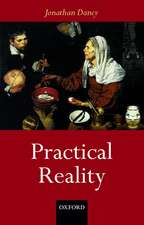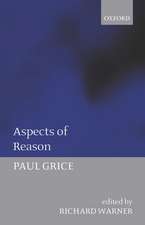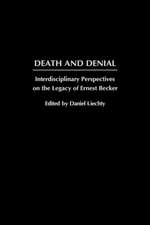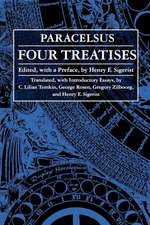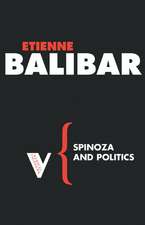Medieval Philosophy: A Very Short Introduction: Very Short Introductions
Autor John Marenbonen Limba Engleză Paperback – 28 ian 2016
| Toate formatele și edițiile | Preț | Express |
|---|---|---|
| Paperback (2) | 50.75 lei 10-16 zile | +15.03 lei 7-13 zile |
| OUP OXFORD – 28 ian 2016 | 50.75 lei 10-16 zile | +15.03 lei 7-13 zile |
| Taylor & Francis – 28 sep 2006 | 300.63 lei 6-8 săpt. | |
| Hardback (1) | 1060.31 lei 6-8 săpt. | |
| Taylor & Francis – 5 oct 2006 | 1060.31 lei 6-8 săpt. |
Din seria Very Short Introductions
-
 Preț: 56.70 lei
Preț: 56.70 lei -
 Preț: 47.19 lei
Preț: 47.19 lei -
 Preț: 56.45 lei
Preț: 56.45 lei - 5%
 Preț: 56.93 lei
Preț: 56.93 lei -
 Preț: 47.44 lei
Preț: 47.44 lei -
 Preț: 46.72 lei
Preț: 46.72 lei -
 Preț: 46.09 lei
Preț: 46.09 lei -
 Preț: 40.95 lei
Preț: 40.95 lei -
 Preț: 46.28 lei
Preț: 46.28 lei - 17%
 Preț: 51.70 lei
Preț: 51.70 lei - 18%
 Preț: 51.45 lei
Preț: 51.45 lei - 18%
 Preț: 51.54 lei
Preț: 51.54 lei - 17%
 Preț: 51.82 lei
Preț: 51.82 lei - 17%
 Preț: 52.08 lei
Preț: 52.08 lei - 17%
 Preț: 51.99 lei
Preț: 51.99 lei - 17%
 Preț: 52.16 lei
Preț: 52.16 lei - 17%
 Preț: 51.73 lei
Preț: 51.73 lei - 17%
 Preț: 52.08 lei
Preț: 52.08 lei - 18%
 Preț: 51.45 lei
Preț: 51.45 lei - 17%
 Preț: 52.26 lei
Preț: 52.26 lei - 17%
 Preț: 51.91 lei
Preț: 51.91 lei - 17%
 Preț: 51.73 lei
Preț: 51.73 lei - 18%
 Preț: 50.75 lei
Preț: 50.75 lei - 17%
 Preț: 51.79 lei
Preț: 51.79 lei - 18%
 Preț: 51.47 lei
Preț: 51.47 lei - 17%
 Preț: 51.63 lei
Preț: 51.63 lei - 30%
 Preț: 43.88 lei
Preț: 43.88 lei - 17%
 Preț: 51.63 lei
Preț: 51.63 lei -
 Preț: 67.31 lei
Preț: 67.31 lei - 17%
 Preț: 51.63 lei
Preț: 51.63 lei - 17%
 Preț: 51.91 lei
Preț: 51.91 lei - 17%
 Preț: 51.61 lei
Preț: 51.61 lei - 17%
 Preț: 51.82 lei
Preț: 51.82 lei - 17%
 Preț: 51.69 lei
Preț: 51.69 lei - 18%
 Preț: 51.28 lei
Preț: 51.28 lei - 17%
 Preț: 51.63 lei
Preț: 51.63 lei - 17%
 Preț: 51.63 lei
Preț: 51.63 lei - 17%
 Preț: 52.01 lei
Preț: 52.01 lei - 18%
 Preț: 51.36 lei
Preț: 51.36 lei - 18%
 Preț: 51.00 lei
Preț: 51.00 lei - 17%
 Preț: 52.08 lei
Preț: 52.08 lei - 18%
 Preț: 51.00 lei
Preț: 51.00 lei - 17%
 Preț: 52.11 lei
Preț: 52.11 lei - 18%
 Preț: 51.45 lei
Preț: 51.45 lei - 17%
 Preț: 51.82 lei
Preț: 51.82 lei - 17%
 Preț: 52.16 lei
Preț: 52.16 lei - 17%
 Preț: 52.04 lei
Preț: 52.04 lei - 17%
 Preț: 51.73 lei
Preț: 51.73 lei - 17%
 Preț: 52.43 lei
Preț: 52.43 lei - 17%
 Preț: 52.26 lei
Preț: 52.26 lei
Preț: 50.75 lei
Preț vechi: 62.03 lei
-18% Nou
Puncte Express: 76
Preț estimativ în valută:
9.72€ • 10.01$ • 8.14£
9.72€ • 10.01$ • 8.14£
Carte disponibilă
Livrare economică 21-27 ianuarie
Livrare express 18-24 ianuarie pentru 25.02 lei
Preluare comenzi: 021 569.72.76
Specificații
ISBN-13: 9780199663224
ISBN-10: 019966322X
Pagini: 160
Ilustrații: 8 black and white halftones and line drawings
Dimensiuni: 114 x 174 x 10 mm
Greutate: 0.09 kg
Editura: OUP OXFORD
Colecția OUP Oxford
Seria Very Short Introductions
Locul publicării:Oxford, United Kingdom
ISBN-10: 019966322X
Pagini: 160
Ilustrații: 8 black and white halftones and line drawings
Dimensiuni: 114 x 174 x 10 mm
Greutate: 0.09 kg
Editura: OUP OXFORD
Colecția OUP Oxford
Seria Very Short Introductions
Locul publicării:Oxford, United Kingdom
Notă biografică
John Marenbon studied at Trinity College, Cambridge, where in 1978 he became, as he remains, a fellow. He is also a Fellow of the British Academy (2009) and Honorary Professor of Medieval Philosophy in the University of Cambridge (2010) . He has also taught at the Sorbonne (Paris IV) and has been a visiting fellow at the Centre for Mediaeval Studies and the Pontifical Institute at the University of Toronto, and at present holds a visiting appointment at Peking University. His books include Pagans and Philosophers. The problem of paganism from Augustine to Leibniz (Princeton University Press, 2015), and The Cambridge Companion to Boethius (Cambridge University Press, 2009).
Cuprins
1. Introduction 2. The Ancient Traditions in Medieval Philosophy 3. Old Traditions and New Beginnings 4. Traditions Apart 5. The Latin Twelfth Century 6. Philosophy in Twelfth-Century Islam 7. Philosophy in Paris and Oxford, 1200–1277 8. Philosophy in the Universities 1277–1400 9. Philosophy Outside the Universities, 1200–1400 10. Not an Epilogue: ‘Medieval’ Philosophy, 1400–1700
Recenzii
'Professor Marenbon’s book is an authoritative, comprehensive, yet accessible survey of medieval philosophy, written by an expert at the height of his critical powers. Not only does the book guide the reader through the diverse issues of medieval philosophy, but provides sagacious instruction and illuminating commentary on the central topics of its chosen period of study.' - Martin Stone, Katholieke Universiteit Leuven, Belgium
'Marenbon has managed to write about an enormous array of topics in a lucid and accessible way. His prose is clear without being condescending, informative without being either patronizing or importunate. The beginner will find it approachable and unpretentious.' - Peter King, University of Toronto, Canada
'Marenbon has managed to write about an enormous array of topics in a lucid and accessible way. His prose is clear without being condescending, informative without being either patronizing or importunate. The beginner will find it approachable and unpretentious.' - Peter King, University of Toronto, Canada
